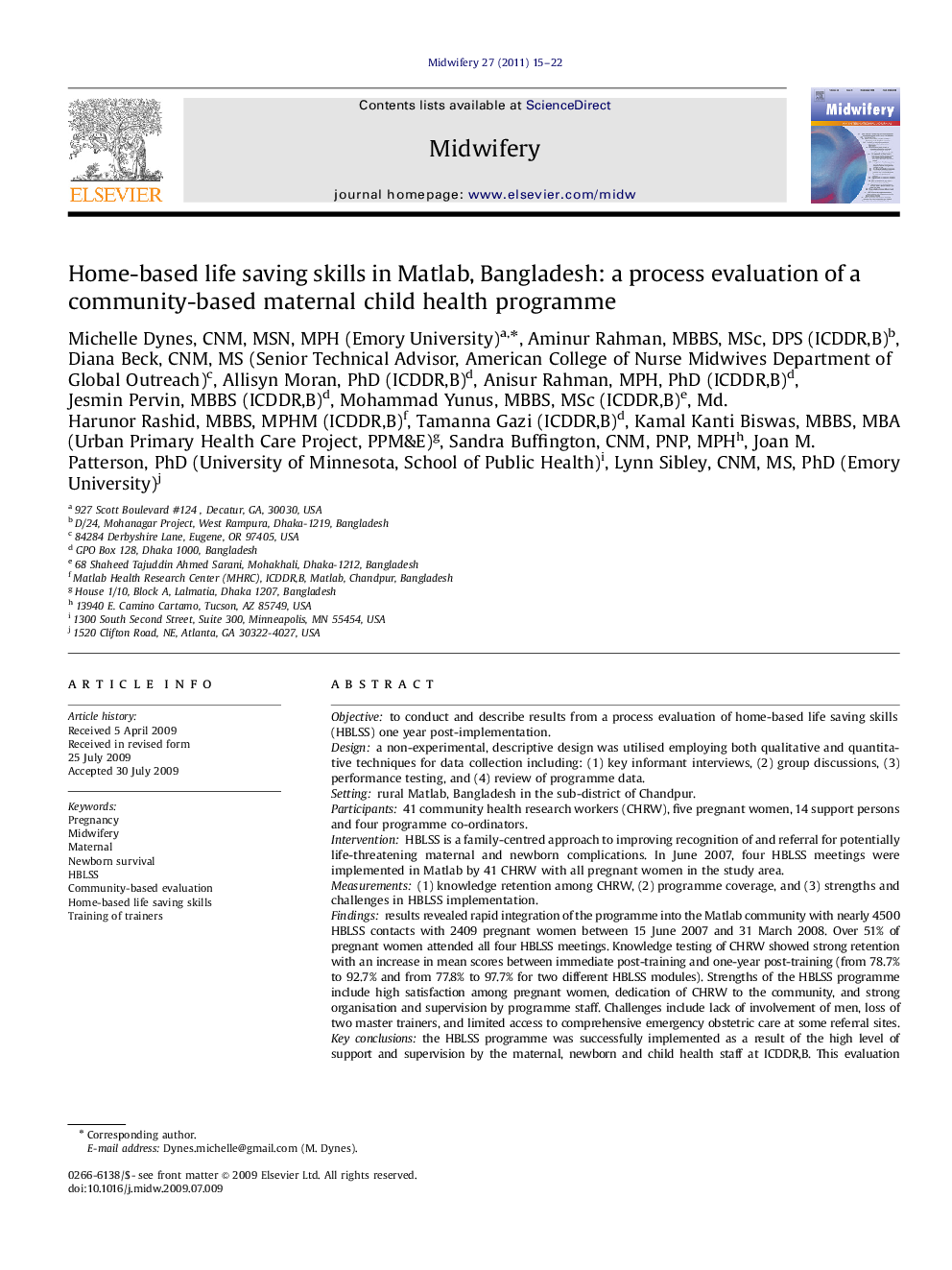| کد مقاله | کد نشریه | سال انتشار | مقاله انگلیسی | نسخه تمام متن |
|---|---|---|---|---|
| 1085293 | 951349 | 2011 | 8 صفحه PDF | دانلود رایگان |

Objectiveto conduct and describe results from a process evaluation of home-based life saving skills (HBLSS) one year post-implementation.Designa non-experimental, descriptive design was utilised employing both qualitative and quantitative techniques for data collection including: (1) key informant interviews, (2) group discussions, (3) performance testing, and (4) review of programme data.Settingrural Matlab, Bangladesh in the sub-district of Chandpur.Participants41 community health research workers (CHRW), five pregnant women, 14 support persons and four programme co-ordinators.InterventionHBLSS is a family-centred approach to improving recognition of and referral for potentially life-threatening maternal and newborn complications. In June 2007, four HBLSS meetings were implemented in Matlab by 41 CHRW with all pregnant women in the study area.Measurements(1) knowledge retention among CHRW, (2) programme coverage, and (3) strengths and challenges in HBLSS implementation.Findingsresults revealed rapid integration of the programme into the Matlab community with nearly 4500 HBLSS contacts with 2409 pregnant women between 15 June 2007 and 31 March 2008. Over 51% of pregnant women attended all four HBLSS meetings. Knowledge testing of CHRW showed strong retention with an increase in mean scores between immediate post-training and one-year post-training (from 78.7% to 92.7% and from 77.8% to 97.7% for two different HBLSS modules). Strengths of the HBLSS programme include high satisfaction among pregnant women, dedication of CHRW to the community, and strong organisation and supervision by programme staff. Challenges include lack of involvement of men, loss of two master trainers, and limited access to comprehensive emergency obstetric care at some referral sites.Key conclusionsthe HBLSS programme was successfully implemented as a result of the high level of support and supervision by the maternal, newborn and child health staff at ICDDR,B. This evaluation highlights the value of community health workers in the fight against maternal and newborn mortality. Findings emphasise the strength of the HBLSS training approach in transferring knowledge from trainer to HBLSS guide.
Journal: Midwifery - Volume 27, Issue 1, February 2011, Pages 15–22